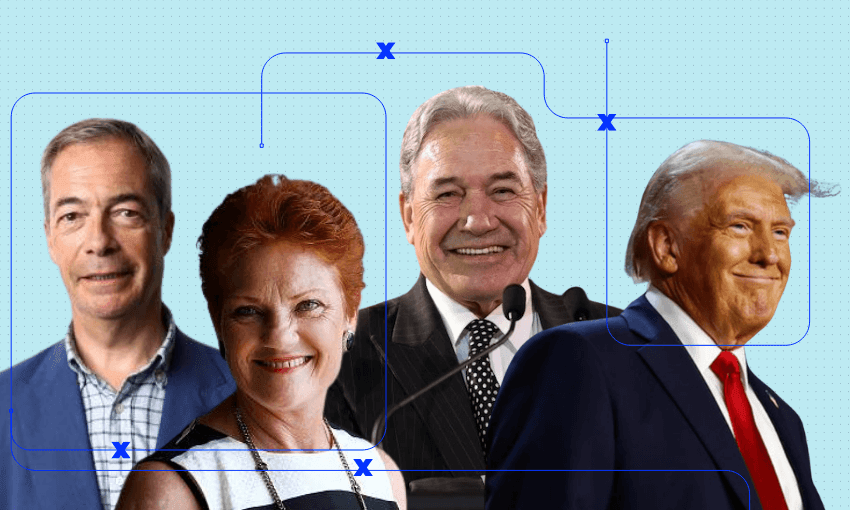How did the National leadership contenders vote on bills relating to abortion, gay marriage and euthanasia?
Tomorrow, the National Party will meet to decide its new leader following Judith Collins’ ousting last Thursday.
Wondering who all the candidates are, and how their values align? Conscience votes are votes that are made according to an MP’s personal beliefs or, as is sometimes communicated, the stance of their constituents. It can be a chance for MPs to stray from the party line and represent themselves as individuals rather than party members.
In the past decade, prominent conscience votes have included the Marriage Amendment Bill (2013), which sought to legalise non-heterosexual marriage, the Abortion Legislation Bill (2020), which looked to officially remove abortion from the Crimes Act, and the End of Life Choice Bill (2019), which sought to legalise assisted death for the terminally ill.
All three passed. Here’s how the contenders voted.
Simon Bridges
Marriage equality: NO, then YES?
Bridges initially voted against marriage reform, but in 2019, Bridges told Newshub, “my personal view has changed – simply, times have moved, we’ve seen it, it’s going incredibl[y] well.”
Decriminalising abortion: NO
Bridges voted against abortion reform, publicly stating, “I don’t see the case for change.”
End of life choice: NO
Bridges told NewstalkZB he believes in “the sanctity of life” and voted against the bill.
Christopher Luxon
Marriage equality: UNKNOWN
Luxon wasn’t yet in parliament when the Marriage Amendment Bill was voted on, and has yet to express views on marriage equality. But he has been vocal about his evangelical protestant Christian faith. In 2019, as a newly elected MP, Luxon told Stuff, “My faith is a very personal thing … it gives me mission and purpose.” He has been characterised as one of the more conservative members of the National Party.
Decriminalising abortion: NO
Luxon wasn’t yet in parliament when the Abortion Legalisation Bill was being voted on, but when he was selected as National’s Botany candidate in 2019, he told media he was against decriminalising abortion.
End of life choice: NO
Luxon wasn’t yet in parliament when the End of Life Choice Bill was being voted on either, but in 2019 said he was personally against reform of euthanasia law.
Mark Mitchell
Marriage equality: NO, then YES
Mitchell voted “strongly” against marriage reform, which he said was aligned with the views of his electorate. But in 2018, on the AM Show, Mitchell stated he’d now vote for same-sex marriage legalisation “without a doubt”.
Decriminalising abortion: YES
Mitchell voted for abortion reform. During the hearing Mitchell testified that “we should never, ever discount the stress and the torment that, in this case, the parents or a woman go through in terms of coming to that decision and making that decision”.
End of life choice: YES
Mitchell voted yes on the End of Life Choice Bill.
Shane Reti
Marriage equality: UNKNOWN
Reti has not been forthcoming on his views about marriage equality.
Decriminalising abortion: NO
Reti voted against abortion reform.
End of life choice: NO
Reti, who has worked as a doctor for over 16 years, opposed the End of Life Choice Bill. He told parliament, “I am the only MP – if this bill goes through – who will be able to give permission to euthanise people.”
Nicola Willis
Marriage equality: YES
Willis was non-committal in this interview about banning conversion therapy, but she did say she would have voted in favour of gay marriage had she been an MP in 2013.
Decriminalising abortion: YES
Willis voted strongly for abortion reform. In a speech given to parliament on the issue, Willis advocated for women’s rights and healthcare access.
End of life choice: YES
Willis supported the End of Life Choice Bill.
Chris Bishop
Marriage equality: YES (kind of)
Bishop narrowly missed voting on the marriage equality bill, being elected to parliament in 2014. However, he is a chair of The New Zealand Cross Party Rainbow Parliamentary Network, and on Australia’s legalisation of same-sex marriage, Bishop said, “Marriage equality is about dignity, respect, and the legalisation of love between people of the same sex. Nothing more, and nothing less.”
Decriminalising abortion: YES
Bishop voted yes to abortion reform, writing in a Facebook post that he believed “women should make decisions about their own reproductive systems”.
End of life choice: YES
Bishop voted yes to the bill, telling parliament that it “upholds individual dignity. It affirms individual autonomy. It sanctifies self-determination.”
Follow The Spinoff’s politics podcast Gone By Lunchtime on Apple Podcasts, Spotify or your favourite podcast provider.





